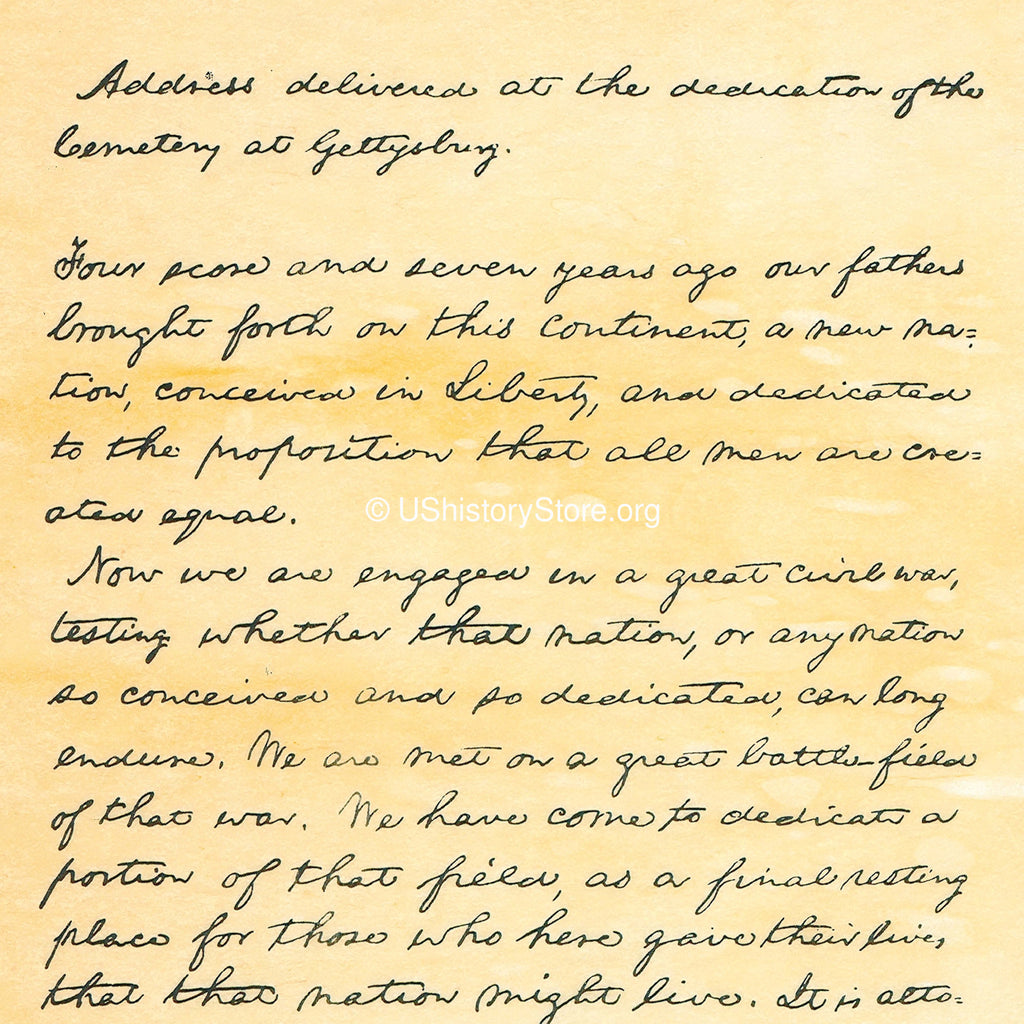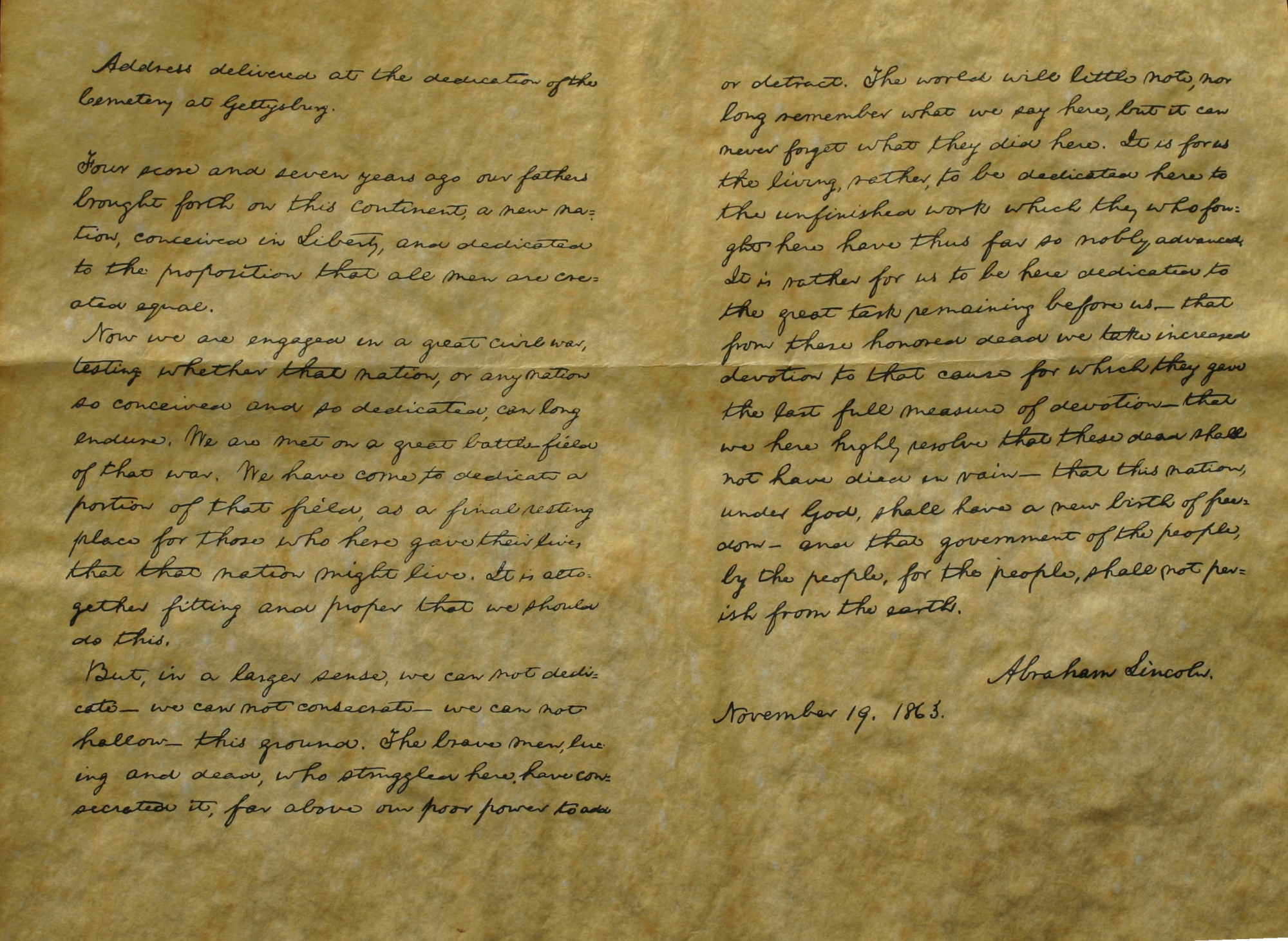
It is for us the living, rather, to be dedicated here to the unfinished work which they who fought here have thus far so nobly advanced.

The world will little note, nor long remember what we say here, but it can never forget what they did here. The brave men, living and dead, who struggled here, have consecrated it, far above our poor power to add or detract.

It is altogether fitting and proper that we should do this.īut, in a larger sense, we can not dedicate – we can not consecrate – we can not hallow – this ground. We have come to dedicate a portion of that field, as a final resting place for those who here gave their lives that that nation might live. We are met on a great battle-field of that war.

Now we are engaged in a great civil war, testing whether that nation, or any nation so conceived and so dedicated, can long endure. Selected byįour score and seven years ago our fathers brought forth on this continent, a new nation, conceived in Liberty, and dedicated to the proposition that all men are created equal. In so doing, the amendments sought to make Lincoln’s “new birth of freedom” a constitutional reality. In his powerful address, Lincoln embraced the Declaration of Independence, recalling how the nation was “conceived in Liberty, and dedicated to the proposition that all men are created equal.” By resurrecting these promises, Lincoln committed post-Civil War America to “a new birth of freedom.” Following the Civil War, the Reconstruction Amendments-the Thirteenth, Fourteenth, and Fifteenth Amendments-abolished slavery, wrote the Declaration of Independence’s commitment to freedom and equality into the Constitution, and promised to ban racial discrimination in voting. Noted orator Edward Everett spoke for nearly two hours, while Lincoln spoke for a mere two minutes. Lincoln was not even the featured speaker that day. President Lincoln offered this brief speech in a dedication ceremony for a new national cemetery near the Gettysburg battlefield. The Union victory at Gettysburg was a key moment in the Civil War-thwarting General Robert E. On November 19, 1863, Abraham Lincoln delivered one of the most famous speeches in American history: the Gettysburg Address.


 0 kommentar(er)
0 kommentar(er)
